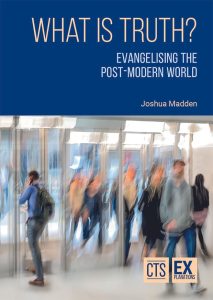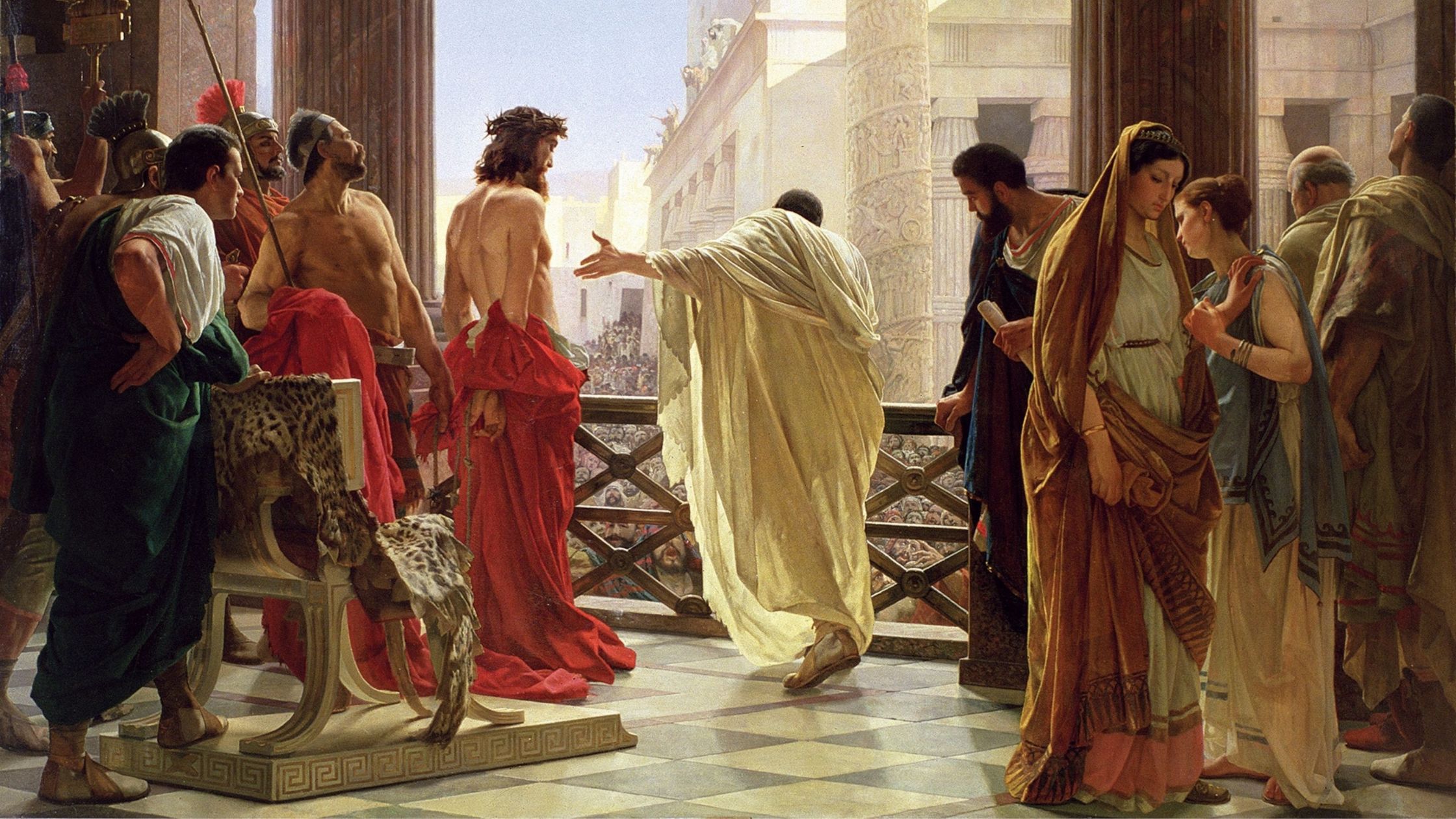If man denies his fundamental capacity for the truth, if he becomes sceptical regarding his ability really to know what is true, he ends up losing what in a unique way draws his intelligence and enthrals his heart.
(Congregation for the Doctrine of the Faith)
When Christians today take up the task of spreading the Gospel, they will encounter a problem. How can the Gospel be preached to a world that claims to already know that there is no God and that faith is unreasonable? Here are five things to bear in mind when trying to share the Gospel in a post-modern world.
1. Truth is no longer seen as objective
During his time at the Congregation for the Doctrine of the Faith, William Cardinal Levada took up one of the foundational aspects of “New Evangelisation” by calling for a “new apologetics” that would be more suited to the current climate. He also emphasised the need to recover a genuine presentation
of what are known as the preambula fidei – certain truths known about the world by natural reason that help lead to faith – in a climate wholly saturated by postmodern doubt:
The spirit of contemporary society is sceptical of truth, of the claims to know truth, even – or especially – of truth revealed by God.
It seems necessary, therefore, not only to call modern man to “repent and believe in the gospel” (see Mk 1:15), but to remind the men and women of today of their power to reason and to know the truth.
It is claimed that God, existence and reality cannot be known by us, that we simply have our own concepts of things, and that one is as good as any other. The ordinary person on the street is happy to “live their own truth”. Indeed, American Supreme Court Justice Anthony Kennedy infamously declared the following:
At the heart of liberty is the right to define one’s own concept of existence, of meaning, of the universe, and of the mystery of human life.
2. Lack of objective truth leads to radical scepticism and nihilism
The modern turn away from objectively known truth is a turn down a road which ultimately dead ends in nihilism. [The belief that there are no principles or beliefs that have any meaning or can be true; extreme scepticism. “A philosophy of nothingness” according to Pope St John Paul II.] If truth cannot be known with any certainty, and if the human experience does not obtain to reality, then what can remain to modern man’s approach to life but a radical scepticism? And if the fundamental attitude of our time is one of scepticism, even in regard to the everyday, the ordinary and the natural, how could it not be one of even greater scepticism of the supernatural?
Nihilism is at the root of the widespread mentality which claims that a definitive commitment should no longer be made, because everything is fleeting and provisional.
(Pope St John Paul II – Fides et Ratio)
3. Radical scepticism leads to humankind making themselves gods
Presented with an existence in which what is objective is thrown out in favour of what is subjective, where ultimate meaning is grounded in the individual, man puts himself in the place of God. Elevating man to the position in which all reality is based inevitably (and directly) dethrones God, putting man in his place. This is, of course, nothing but the latest instantiation of the serpent’s ancient deceit: man must throw off the yoke of God in order to be established as master of himself and become as a god. Henri de Lubac saw this with remarkable clarity:
Man is getting rid of God in order to regain possession of the human greatness that, it seems to him, is being unwarrantably withheld by another. In God he is overthrowing an obstacle in order to gain his freedom. Modern humanism, then, is built upon resentment and begins with a choice. It is… an “anti-theism”.
4. To successfully spread the Gospel, we need to restore the preambles of faith
If the Church is to be successful in her efforts to preach the Gospel to a world and culture that has stopped up its ears and plucked out its eyes and claims to already know that there is no God, then the importance of restoring the “preambula fidei” (the “preambles of faith”) cannot be stressed enough.
Attempting to win an argument about the existence of God when one’s interlocutor cannot even accept a basic notion of objective, knowable truth as apart from a limited, scientific version is not just putting an apologetic cart before the horse: it is trying to drive the cart without the horse hitched on at all.
5. People need to learn that God can be found through natural reason
To show that it is proper to human nature to have true knowledge of objective truth and of reality is an act of great charity. Those who would preach the truth of Christ must also preach the truth that is to be found within the created order itself; if man is to come to know that it is reasonable to believe in God, he must first come to know that it is reasonable to trust his reason to begin with.
With his encyclical Laudato Si, Pope Francis praises his papal patron St Francis, who was able to see the world in a properly ordered way, and by calling us to imitate his example, holds St Francis up as a model of the way in which the modern world must be approached:
St Francis, faithful to Scripture, invites us to see nature as a magnificent book in which God speaks to us and grants us a glimpse of His infinite beauty and goodness… For this reason, Francis asked that part of the friary garden always be left untouched, so that wild flowers and herbs could grow there, and those who saw them could raise their minds to God, the Creator of such beauty. Rather than a problem to be solved, the world is a joyful mystery to be contemplated with gladness and praise.
Did you enjoy these extracts from What is Truth?
 Modern philosophy has limited the understanding of reason, resulting in a radical scepticism concerning our capacity to comprehend reality as it truly is and fostering an atmosphere of nihilism and uncertainty.
Modern philosophy has limited the understanding of reason, resulting in a radical scepticism concerning our capacity to comprehend reality as it truly is and fostering an atmosphere of nihilism and uncertainty.
In What is Truth?, Joshua Madden presents a compelling case to address these concerns and provide a solid basis for those who wish to spread the Gospel to their postmodern neighbour.
To effectively communicate the Gospel’s joy in today’s context, Madden suggests that individuals must rediscover the potential to know objective truths about themselves and the world. Madden concludes that this groundwork, known as the preambula fidei, makes it possible to truly know the living God, who has revealed Himself in Christ.
